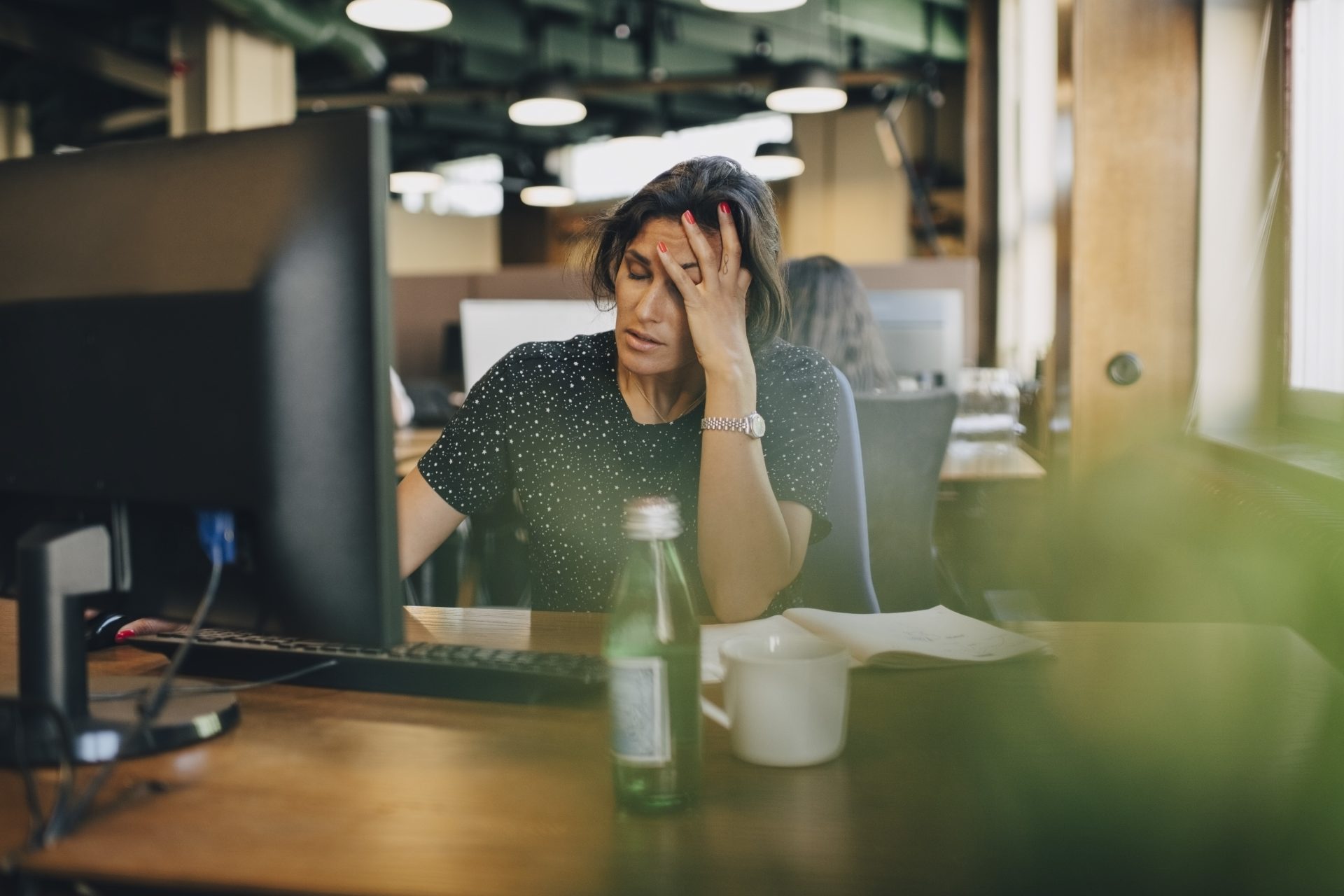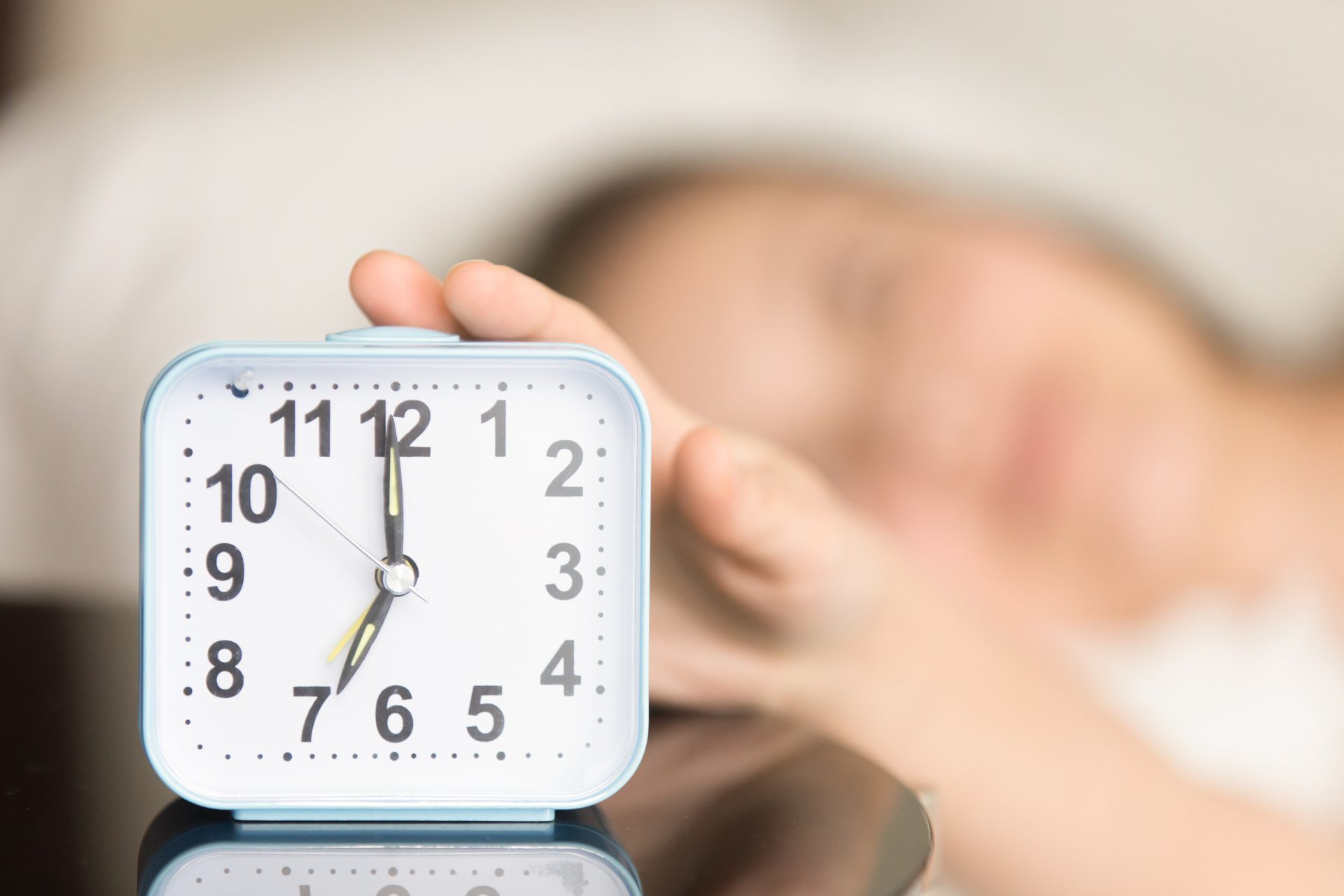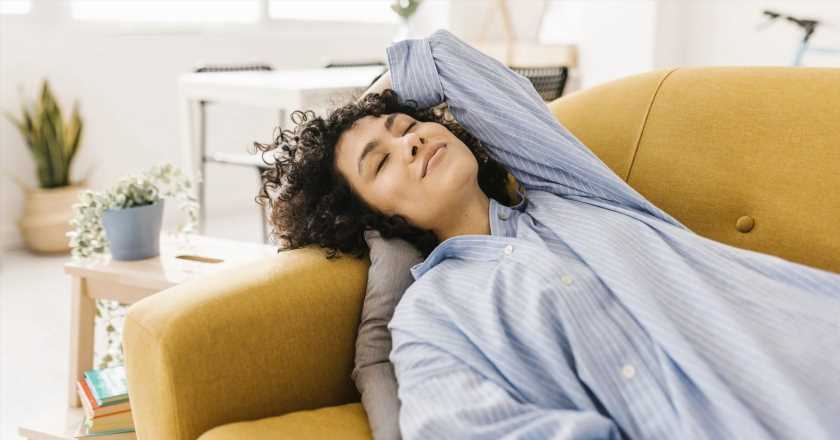This January, we’re on the search for quick, accessible hacks to kickstart 2023 in the strongest way possible. Today’s sleep kickstarter: how to have a sleep reset.
Prioritising a regular sleep schedule and good sleep hygiene is important – we know this. We know about getting seven to nine hours a night; we’ve heard that waking up and winding down with the sun is ideal; we’ve worked out that it’s probably not great to be scrolling before bed. And however committed we are to sleeping better, January always rolls round after a series of late nights.
Some of us are strict with our sleep schedules year-round, with a solid set of rituals and soothing scents and absolutely no qualms about leaving the party early. For others, particularly during very social seasons, we often succumb to something called “social jet lag”.
You may also like
“Why do I feel so exhausted all the time?” When to see your GP about feeling tired
Social jet lag is described as the “discrepancy between work and free days, between social and biological time” and is thought to affect two-thirds of the population of industrialised countries. Much like regular jet lag, it’s when the schedule we’re on is working against our internal body clock, AKA our circadian rhythm. As a short-term consequence, our sleep is shortened, our alertness and performance are impaired, and we may get some gastrointestinal issues.
“Our bodies and immune systems are very sensitive to sleep debt,” says Dr Shelby Harris, clinical psychologist and director of sleep health at Sleepopolis. “Poor sleep and/or a lack of sleep can put extra stress on our bodies, weaken the immune system, and have lasting negative effects on the body and mind. Long-term effects of a disrupted sleep schedule include an increased risk of diabetes, obesity, cardiovascular disease and depression.”

The consequences of poor sleep are so dire because our in-built body clocks are inherently tuned to perform particular functions at times dictated by the natural light cycles. “People would do well to pay more attention to circadian medicine,” adds Alison Francis, ayurvedic coach, former chronic insomniac and founder of The Sleep Guru.
“Circadian rhythm research actually won the Nobel Prize in 2017. Every single cell and organ in our bodies has an internal clock, and every single organ likes to do certain things at certain times of day. If you push uphill against nature, then your body is going to find it really hard.”
So that groggy feeling you get at the start of the week, after a weekend of late nights and lie-ins, is more than just a little tiredness or hangover. “It’s basically jet lag,” says Francis, “so to reset yourself, you have to do it in the same way as if you’ve just done a long-haul flight.”
How long does it take to reset your sleep pattern?
Experts have typically cited a 1:1 ratio between recovery days and hours of time zone shift, ie if you have been away in a country that is five hours ahead, it should take about five days to recover. This writer can confirm, after spending four months in time zones six to seven hours ahead of the UK, that she is still jet lagged writing this six days later.
Social jet lag is effectively the same as actual jet lag. Think about it: if you typically go to bed at 10pm but have had a few late nights and aren’t sleeping until about 2am, that means you’re out of whack by four hours. It’ll take you around four days to recover fully.
However, Francis thinks this is a little too simple. “In the West,” she says, “recommendations are often a blanket thing: take these herbs, do this, try a keto diet – but what works for one person doesn’t work for another. I’m a sensitive sleeper who goes back and forth to Italy a lot. And while it’s only an hour’s difference, it does take me a few days to get back in balance.”
How quickly you recover comes down to what Francis, and ayurveda, refer to as your “constitutional type” or “dosha”. If you’re a “vata” type, that could mean you’re a sensitive sleeper, and a couple of late nights could throw you off balance for a week. However, if you’re what’s known as the “kapha” type, you could sleep standing up, and are not affected by late nights in the slightest. You can find out your sleep type in this quiz on The Sleep Guru website.
7 tips to get your sleep back on track
Get some morning sunlight
Dr Harris recommends getting exposure to natural light first thing in the morning. “This is crucial for regulating your circadian rhythm and it will help you wake up and feel more energised,” she says.
Reset gradually if you need to
Resuming your normal sleep schedule may not happen overnight. “If you’ve been going to bed at 1am for five days,” says Francis, “you might find it difficult to go to bed at 10pm. You have to bring it back in increments. We all go off schedule, you just have to know it’s going to take a bit of time to get back and to make it a plan as part of your wellbeing.”
You may also like
How to get to sleep quicker: does eating dinner later really make it harder to drift off?
Eat dinner earlier
Eating late dinners is inevitable when you’re working late, gymming or socialising – but it’s not ideal. Francis explains that’s “because your digestive fire is trying to cool down at that time. To go into a deep sleep, you need a lowered body temperature.
“But if you eat late, your body has to whack up the temperature to get the fire going again. You then go to bed feeling hot and your heart rate is up because your body is trying to digest food.”
Limit blue light exposure in the evening
“Blue light is the light from your phones and computers,” says Hayley Thistleton, sleep expert at Sleepseeker. “It tricks your brain into thinking it’s daytime and reduces your body’s production of the hormone melatonin, which helps you to relax and wind down ready to fall asleep.
“Try to stay away from your devices at least an hour before going to sleep to sync with your circadian clock.”

Resist the snooze button
“Get up and follow your sleep pattern regardless of how tired you may be,” says Dr Harris.
“The additional sleep you get after hitting snooze will most likely make you feel even more tired.”
Watch your alcohol, sugar and caffeine intake
Now that the festive season is over, you might be thinking about cutting down on your booze intake anyway. But if you’re determined to have a wet January, expect to feel fatigued for longer. “Alcohol, sugar and caffeine all stimulate your nervous system,” says Thistleton. “It is generally recommended that the cut-off time for consuming caffeine should be a minimum of six hours before bedtime – so if you typically go to bed at 10pm, avoiding caffeinated products after 4pm can help to minimise sleep issues.”
Make time to wind down
“Light bulbs are brighter than they’ve ever, ever been,” says Francis. “Having artificial daylight, brighter than actual daylight, in our homes inhibits the sleep hormone. You need to be winding down when the sun comes down.” Switching to candlelight of an evening, not exercising too late and doing a meditation practice to help clear your mind will all help you slip into a delicious, replenishing sleep.
Images: Getty
Source: Read Full Article
